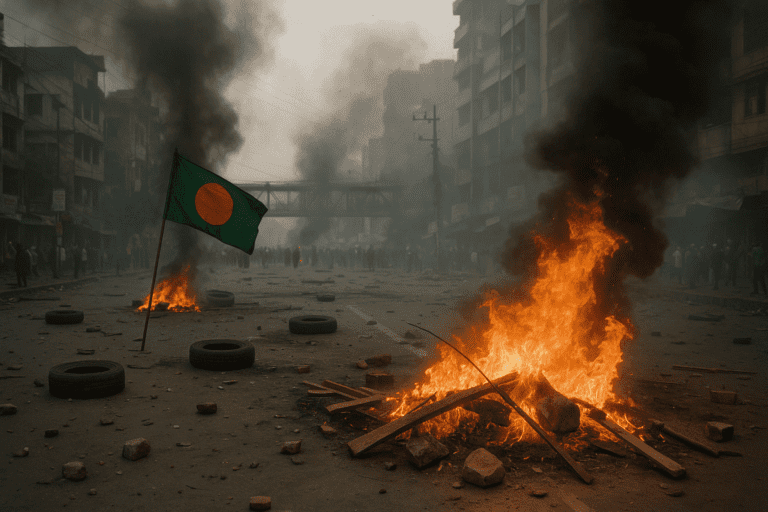On August 5, 2024, Bangladesh was plunged into a severe political crisis when Prime Minister Sheikh Hasina announced her resignation and fled to India, following weeks of escalating protests and mounting allegations of corruption, authoritarianism, and electoral manipulation. Her sudden departure marked a dramatic shift in the country’s volatile political landscape, signaling the collapse of a government that had been accused of suppressing free speech, stifling dissent, and manipulating elections to maintain power.
The resignation came after months of intense protests, primarily led by opposition groups and civil society organizations, who accused Hasina’s government of increasingly undemocratic practices. The demonstrations, which had become violent in several cities, particularly Dhaka, were fueled by accusations of corruption, mismanagement of state resources, and a demand for free and fair elections. As tensions escalated, clashes between riot police and protesters, calling for a restoration of democracy and the release of political prisoners, further destabilized the situation, leading to Hasina’s dramatic exit.
Formation of an Interim Government Under Muhammad Yunus
In the wake of Hasina’s resignation, an interim government was swiftly formed under Nobel laureate Muhammad Yunus, a prominent figure in Bangladesh’s social development. Yunus, widely known for his groundbreaking work in microfinance and social entrepreneurship, was seen as a neutral figure who could help bridge the deep political divides in the country. His appointment was welcomed by many as a potential path to restoring peace and stability, with hopes that his reputation for impartiality and social development would guide Bangladesh through this turbulent period.
However, political analysts remain cautious about Yunus’s ability to navigate the complexities of Bangladesh’s polarized political environment. The longstanding tensions between Hasina’s Awami League and the opposition parties, along with concerns over corruption and human rights abuses, present significant challenges for the interim government. Yunus’s role as a mediator is seen as critical, with many hoping his leadership will help steer the nation toward free and fair elections and greater political accountability.
Violent Protests and Deepening Political Divisions
The political crisis in Bangladesh has exposed deep and longstanding divisions within the country. Protesters have accused Hasina’s government of clamping down on dissent, restricting democratic freedoms, and engaging in widespread corruption. The opposition, led by former Prime Minister Khaleda Zia’s Bangladesh Nationalist Party (BNP), has long criticized Hasina’s leadership, alleging electoral fraud and the suppression of opposition voices.
The violent protests, which saw clashes between demonstrators and riot police, have shaken the nation’s political stability. For many Bangladeshis, Hasina’s departure represents the culmination of years of frustration over the government’s policies. Accusations of authoritarianism, especially regarding the controversial general elections that were widely viewed as rigged, have eroded public trust in the ruling party. The call for free and fair elections has become the rallying cry of the protests, with citizens demanding a return to democratic norms and greater government accountability.
International Concerns and the Path Forward
The political instability in Bangladesh has raised significant concerns on the international stage. The United Nations and several international human rights organizations have expressed alarm over the use of force against protesters and the widespread human rights violations under Hasina’s regime. The international community has urged the interim government to hold free, fair, and transparent elections to restore the democratic process and address the underlying issues of corruption, political repression, and economic inequality.
While Yunus’s appointment is seen as a potential step toward peace, questions remain about how effectively the interim government will be able to navigate Bangladesh’s deeply polarized political environment. The situation is fluid, with many Bangladeshis calling for urgent reforms to protect civil liberties, uphold the rule of law, and restore trust in the electoral system.
The future of Bangladesh’s democracy now depends on the ability of the interim government to engage in meaningful dialogue with opposition forces, address the root causes of unrest, and rebuild the country’s political institutions. The next steps in Bangladesh’s political journey will be critical, not only for the nation’s future but also as a test case for democracy in South Asia. The outcome of this crisis will shape the trajectory of Bangladesh’s political future and could set a precedent for other countries in the region grappling with similar issues of political instability and governance challenges.


